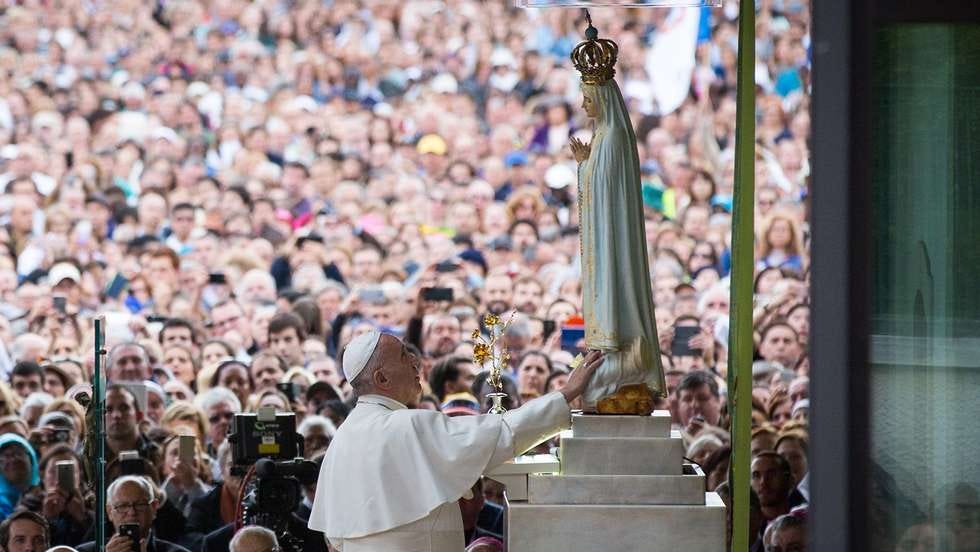Leading with Ternura
What Pope Francis Taught Me About Leadership
I don’t usually talk about religion in professional settings.
But this moment calls for it.
Pope Francis has passed. And while his absence is being felt in church pews and Vatican halls, it’s also worth acknowledging the profound void he leaves in the global conversation on leadership.
Francis wasn’t just the Pope. He was a Jesuit, like the mentors who shaped my earliest understanding of discernment, vocation and leadership. He was also an immigrant-turned-global leader. A man who led the largest institution on earth not through control or charisma - but through humility, acceptance, hope and what in Portuguese we call ternura.
I struggle to translate ternura into English. It’s more than tenderness. It’s a posture of the heart. A softness without weakness. A way of seeing people with compassion and acting with intention.
It’s also something we don’t associate with leadership enough - especially in business.
But Pope Francis proved you can lead the world with it.
Humility is not timidity. It’s conviction without ego.
When Francis refused the papal palace and chose a modest residence instead, he wasn’t signaling virtue. He was practicing culture-setting from day one. Like any founder walking into their first all-hands, he knew that tone is set not by what you say, but by what you do.
In business, we love big mission statements and value slides. But culture doesn’t come from decks - it comes from behavior. From choosing the Renault over the Rolls. From showing up early. From knowing your employees’ names. From taking the stairs.
Francis modeled that every single day. And in doing so, he reminded us: humility isn’t about downplaying your position. It’s about never forgetting that your position exists to serve.
Systems don’t change through disruption alone. They change from within.
One of Francis’ most underappreciated legacies is how he managed Vatican reform. It wasn’t flashy. It wasn’t fast. And it certainly wasn’t universally liked.
But it worked - because it was patient, principled and rooted in purpose.
He didn’t fire everyone and install a Silicon Valley-style “innovation czar.” He built bridges with insiders, brought in outside voices when needed and remained relentlessly focused on cleaning up finances, flattening hierarchy and rooting out complacency. He didn’t shout. He didn’t rush. He held firm.
As a founder, investor and community builder, I want to believe this is the way real transformation happens - not through top-down blitzes or bottom-up chaos, but through side-by-side stewardship, rooted in trust and anchored in values.
Part of me still wrestles with that. I often lean toward the radical, the urgent, the clean break. Maybe that’s youth. Maybe it’s ego. Or maybe it’s just a different kind of hope.
But watching Pope Francis, I’m learning that patience isn’t passivity - and that real systems change might just require more presence than disruption.
Francis was a master of that.
He led with the heart of a builder. Not a boss.
What I admired most about Pope Francis was how clearly he understood that leadership isn’t about being right - it’s about building. People. Cultures. Institutions. Stories.
He asked questions more than he gave answers. He brought in perspectives beyond the European core. He made it okay to disagree. He made inclusion real, not rhetorical. And perhaps most importantly - he stayed human in every interaction, no matter the stage.
That’s how he built one of the most trust-driven papacies in modern memory. Not with spin. Not with positioning. But with presence.
So where does that leave us?
I won’t claim Francis had it all figured out. But he figured out enough to leave us with a playbook that transcends religion, politics and sector:
Live your values out loud - but quietly.
Lead with ternura.
Build slowly, then suddenly.
Ask better questions.
Stay deeply, stubbornly human.
In my own work - whether investing in ambitious people or building community across borders - I want to carry that spirit with me.
Not just in memory of the man, but in service of the future he modeled so well.



